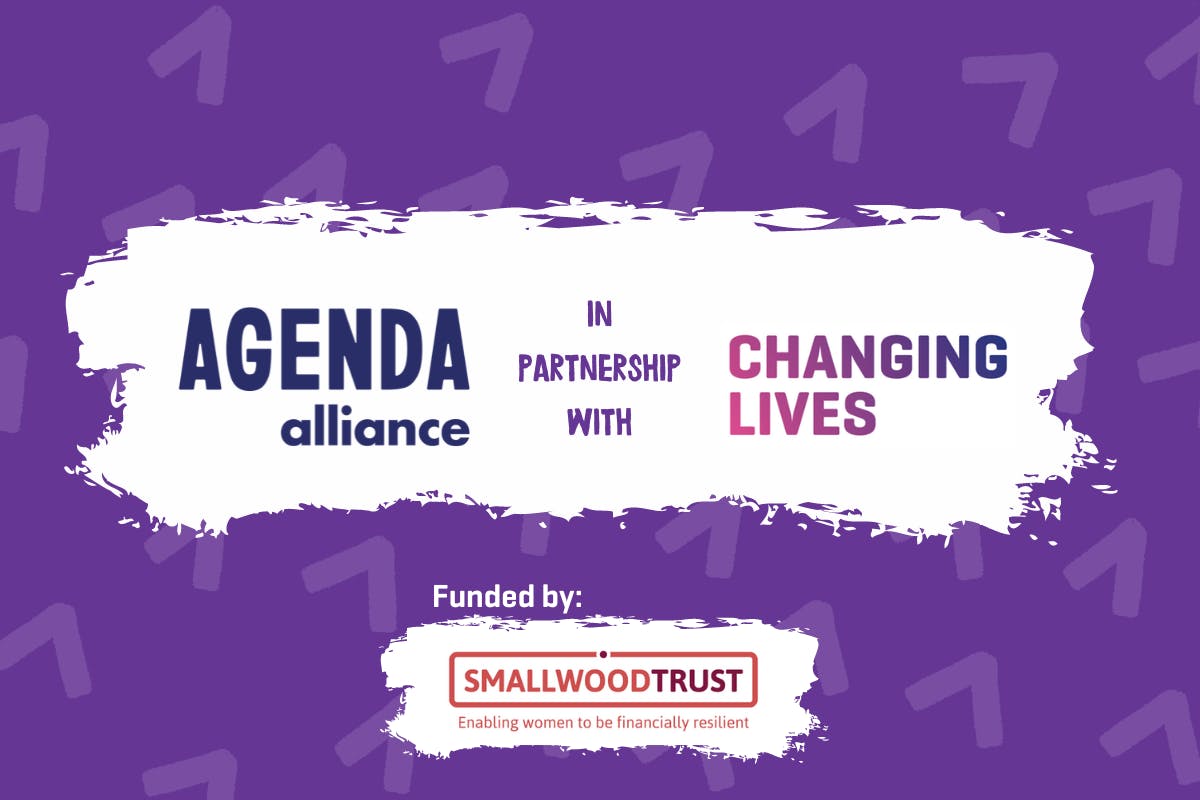A guest blog by Cynthia Otote, Communications Officer at Agenda Alliance
Nici* said, “Once that court case was finished and the kids were gone, it was like where does that leave me? What do I do?”
The removal of a child from their biological parents’ care is one of the most extreme forms of state intervention into family life and is generally considered to be the last option by social workers and the family courts. Despite this, child removal cases in England have risen by 33% in the last decade. In the Northeast of England, where Nici lives, the rise in cases has been even more extreme – 77% from 2009 to 2021.
The effects of child removal on mothers are damaging and include grief, substance use, depression and increased risk of suicide attempts. For women coping with the aftermath of child separation therefore, there is a need for meaningful support. However, we recently spoke to the women from our Transforming Services project, based in Tyne and Wear and Northumberland, who shared that there is a serious lack of support, information and understanding for women in their situation.
Lack of support
Many of the women spoke about how the involvement of social services ended as soon as their children were removed, leaving them to deal with the trauma of losing their child alone.
Nici took her children’s father to court after he refused to stop drinking while he had the children in his care. After the court case, she felt extremely isolated.
“Once that court case was finished and the kids were gone, it was like where does that leave me? What do I do?” she said. “I knew no support groups. I didn’t know of any other women that I could vent to or get their side of things. There was nothing.”
Similarly, Steff, whose children have been placed with her parents under special orders, said, “[Social services] say they’re there to help but as soon as they’ve got your children on an order where they don’t have to speak to you, they choose not to. Once the special guardianship order was granted, [my social worker] disappeared off the face of the earth.”
Lack of information
Some of the women spoke about the lack of information around the process of getting their children back in their care.
After becoming sober, Lorna tried to have her daughter returned to her but faced difficulty. She said, “For me, it’s that lack of information that you’re given. I got [sober] and tried to ring social services to find out how I could get [my daughter] back and they were like, ‘Sorry, we don’t deal with you anymore’.”
Similarly, Deb said, “I had no one to help me fill my court papers or sit down after the boys were removed to say this is what you need to work towards to get your boys back home.”
Lack of understanding
The women also brought up the need for social services to have a better understanding of addiction and recovery.
Haley, who had her child removed from her care following substance use issues, said:
“I wish they understood a bit more about addiction. They think recovery’s going to happen like this.”
She added, “If you’ve been using drugs and alcohol, obviously there’s trauma of some sort going on and that isn’t going to be solved by removing your children.”
Agreeing, Steff said, “Once I found out [my son] was gone, my drinking and drug [use] took right off again. If I didn’t have support around me now, support that I’ve found myself, I don’t think I’d be here today.”
The importance of women’s groups
As Steff said, many of the women were forced to find their own support and uplifted the importance of women’s groups in filling the gaps left by social services, combatting the stigma they face and providing a community.
Haley said, “[You can] look around the room and know, as sad as it is, that everybody has been in that predicament and that you’re not alone.”
While Nici said, “It makes you think hold on, there are other people out there that have gone through the same. It makes you feel connected.”
Our Transforming Services for Women’s Futures project, in partnership with Agenda Alliance and funded by Smallwood Trust, aims to explore the ways in which public services can be redesigned post-pandemic to better support women with multiple unmet needs. So far, our research demonstrates the need to embed an understanding of the experiences of mothers with multiple unmet needs across children and family social work.
**Names have been changed to protect the privacy and identities of the women.



